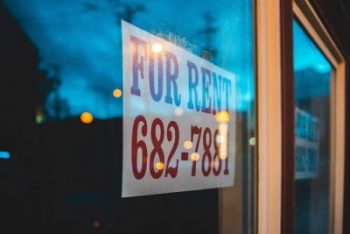A resource guide for renters, homeowners and landlords
 The state and federal governments have repeatedly updated protections for homeowners and renters throughout the pandemic. Here’s where things stand:
The state and federal governments have repeatedly updated protections for homeowners and renters throughout the pandemic. Here’s where things stand:
How is the state protecting landlords?
The COVID-19 Emergency Eviction and Foreclosure Prevention Act permits landlords who own 10 or fewer dwelling units to fill out hardship declarations. These forms may be used to halt foreclosures and tax lien sales until at least May 1.
Owners may qualify if public assistance they’ve received doesn’t make up for the amount of income they’ve lost or expenses they’ve incurred since COVID-19 hit. Landlords may be eligible if:
•at least one tenant has defaulted on a significant amount of rent
•a significant portion of household income has been lost
•caretaking duties for children or elderly, disabled or sick relatives has decreased earnings or increased costs
Where do Iandlords get hardship declaration forms?
Mortgage lenders and tax authorities have an obligation to provide owners with forms when initiating foreclosure cases and tax lien sales.
Before then, owners may find hardship declarations for foreclosures at nwsdy.li/ownerhardship; and for tax lien sales, at nwsdy.li/taxlien.
Where do owners submit hardship declarations?
If landlords are involved in a foreclosure case, they can provide the declaration to the court as well as their mortgage lender.
Owners may otherwise submit the forms to their lenders and any village, town, city, school district or county that conducts tax lien sales.
What happens next?
The law notes that declarations will be assumed to be true, unless proved otherwise. The forms will halt foreclosure proceedings and tax lien sales until at least May 1.
How does the law impact tenants?
The measure shields tenants from eviction if they have suffered a financial hardship — or if relocating would pose a significant health risk for someone who is over 65 or has a disability or underlying medical condition.
Renters with financial issues may qualify if the public assistance they’ve received doesn’t make up for the amount of income they’ve lost or expenses they’ve incurred.
How do renters seek protection?
Landlords are obligated to provide hardship declaration forms to tenants when initiating eviction proceedings; and the court will send them to renters in pending cases.
Tenants who are facing an eviction suit should give the form with their case number to the court handling their case, according to Nassau Suffolk Law Services, a nonprofit that represents Long Islanders in need.
Renters may also download a template published by the state Office of Court Administration, at nwsdy.li/renterhardship, and give it to their landlord.
They should save a copy of the document, according to Michael Wigutow, who leads the Nassau housing unit and the foreclosure prevention project islandwide for Nassau Suffolk Law Services.
What if landlords don’t think a hardship declaration is valid?
A landlord may request that the court hold a hearing to consider evidence that the declaration is inaccurate, but the tenant’s statements will be presumed to be true, unless proved otherwise, according to landlord-tenant attorney Bradley Schnur.
What happens if the lease has expired?
Tenants with annual leases who meet the hardship declaration criteria can’t be evicted when the agreement ends, according to Wigutow. He believes the court will extend this protection to renters with month-to-month arrangements.
So who can be evicted?
Tenants may be evicted if they don’t meet the criteria in the hardship declaration and they: haven’t paid rent, have stayed beyond their lease or have otherwise violated the agreement.
Are there any exceptions?
There is an exception for renters who routinely engage in behavior that “substantially infringes on the use and enjoyment of other tenants” or causes a “substantial safety hazard,” the law notes. The exception refers to dangerous behavior and issues like noise complaints, which Wigutow said can be subjective.
Generally, landlords will need to prove that tenants’ behavior violates expectations outlined in their lease agreements, according to Wigutow. For pending cases, judges will require evidence that the conduct was a problem before late December 2020 and that it remains an ongoing concern, he said.
What happens after May 1?
Renters may seek protection in court through the Tenant Safe Harbor Act. Under this state law, those who have experienced a financial hardship from March 7, 2020, until the end of the COVID-19 emergency may not be evicted for nonpayment of rent.
When determining what qualifies as a financial hardship, judges will consider changes in income, liquid assets and access to public benefits.
Wigutow said it’s unclear whether this protection will apply to those who are not involved in a nonpayment case.
Tenants will still be responsible for all unpaid rent.
What protections exist at the federal level?
The U.S. Centers for Disease Control extended a moratorium on evictions through March 31, 2021. The agency currently shields renters who meet specific qualifications, with details available, at nwsdy.li/3tn6r3f. Tenants must fill out a declaration form, which is available at nwsdy.li/3jgVXNW, and give it to their landlord.
Mortgages backed by the federal government may fall under a foreclosure moratorium in place through March 31, 2021.
Guidance for tenants, landlords
The Nassau County Bar Association’s COVID Help Task Force offers free information and guidance for tenants and landlords. Those seeking help, may email [email protected]. An attorney should respond within two business days. The guidance will not include representation in court.
Source: newsday.com















 Accessibility
Accessibility